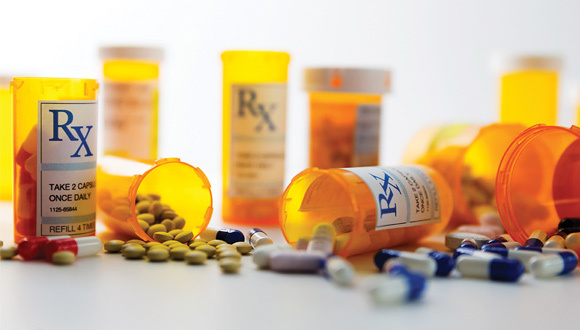Antibiotics 101: Everything You Need to Know About Antibiotics
Sep. 16, 2021 - Sheshe GiddensDo you have a sore throat, persistent cough or the flu? No problem, just ask your primary care physician for an antibiotic. Not so fast. Antibiotics won't help.
Colds, flu and other common illnesses are caused by viruses, and antibiotics don't kill them. There are no medications that kill these viruses. Antiviral medications will only inhibit a virus's development. But, if you have a virus, it must run its natural course — usually in two weeks.
Antibiotics are used to treat infections caused by bacteria, fungi and some parasites. They are commonly used to treat pneumonia, sinus infections, strep throat, ear infections, skin infections, acne, urinary tract infections and sexually transmitted diseases.
So how do you know if your illness is caused by a virus or bacteria, or if you need an antibiotic? We asked Dr. Victor Fainstein, an infectious disease specialist at Houston Methodist Hospital, to discuss these and other antibiotic-related questions.
Q: What are antibiotics?
Antibiotics are a class of drugs, also called antimicrobials, that fight bacterial infections. Penicillin, which was the first antibiotic, was discovered in the late 1920s, but it wasn't used to treat infections until the 1940s. Several antibiotics are currently on the market and each class affects different types of bacterium.
Q: How do I know if I need an antibiotic?
You should contact your health care provider to discuss your illness and its symptoms. In some cases, he or she will ask you to come in for an appointment. At other times, the virtual visit will suffice. However, only your health care provider should determine if and what type of antibiotic you need.
Q: Even if my doctor says I don't need an antibiotic, should I ask for one to be on the safe side?
No. Taking an antibiotic if you don't need it will not help. It won't make you feel better. It may extend your illness and cause unnecessary side effects.
Q: If you feel better, is it safe to stop taking the prescribed antibiotic?
No. Just because the symptoms subside doesn't mean that the bacteria have been killed. You should always complete the prescribed course of treatment. If not, some bacteria may survive, and you may relapse.
Q: Is it safe to take someone else's antibiotics?
No. Only take antibiotics that have been prescribed for you. There are many antibiotics on the market, and they can't be used interchangeably. Taking the incorrect antibiotic may prolong your illness or allow bacteria to multiply.
Q: Are there any side effects to antibiotics?
Antibiotics, as with all medications, have potential side effects. Some of the common side effects include nausea, diarrhea and stomach pain. If you are bothered by the effects, contact your health care provider to see if there is another one you can take. Also, some women may develop yeast infections as a result of taking antibiotics. In rare instances, antibiotics can cause an allergic reaction that can require medical attention.
Q: Can I take expired antibiotics?
No. You should not take expired medications of any kind. All medications have a shelf life. After that date, the medication loses its potency. Taking expired medications can prolong your illness and produce unwanted side effects.
Q: What is antibiotic resistance?
Antibiotic resistance has been called one of the world's most pressing public health problems. Every time a person takes antibiotics, bacteria are killed. However, some germs are resistant to the antibiotic and may be left behind. These bacteria multiply and can cause harm. Repeated or improper use of antibiotics is the primary cause of antibiotic resistance.
Q: What is the best way to prevent antibiotic resistance?
First and foremost, talk to your health care provider about your illness and its symptoms. If possible, have your health care provider take a culture to determine if the illness is caused by a virus or bacteria. Don't take an antibiotic for a viral infection. Decreasing the inappropriate use of antibiotics is the best way to prevent resistance.








